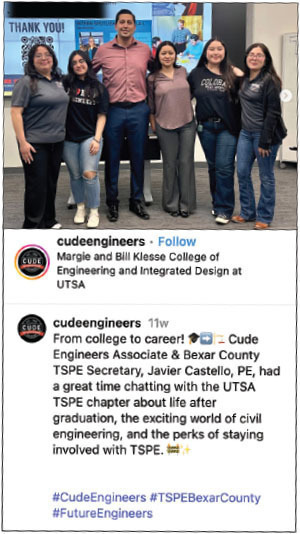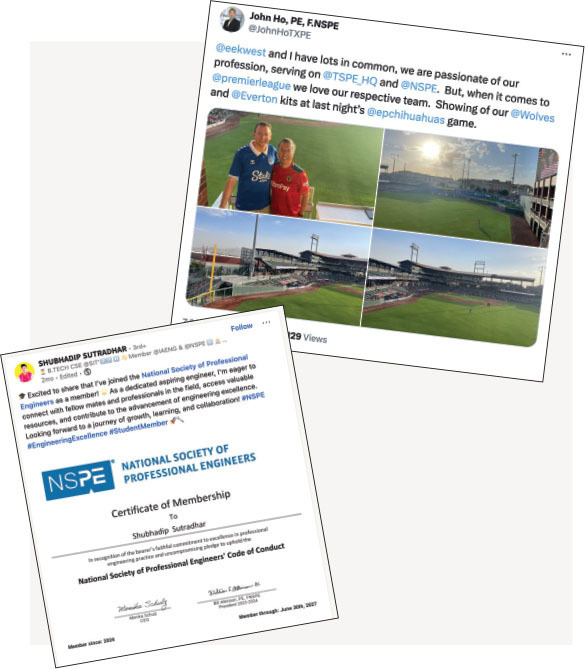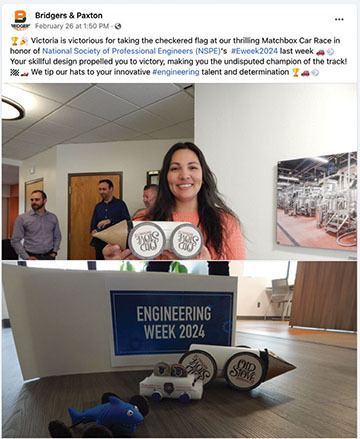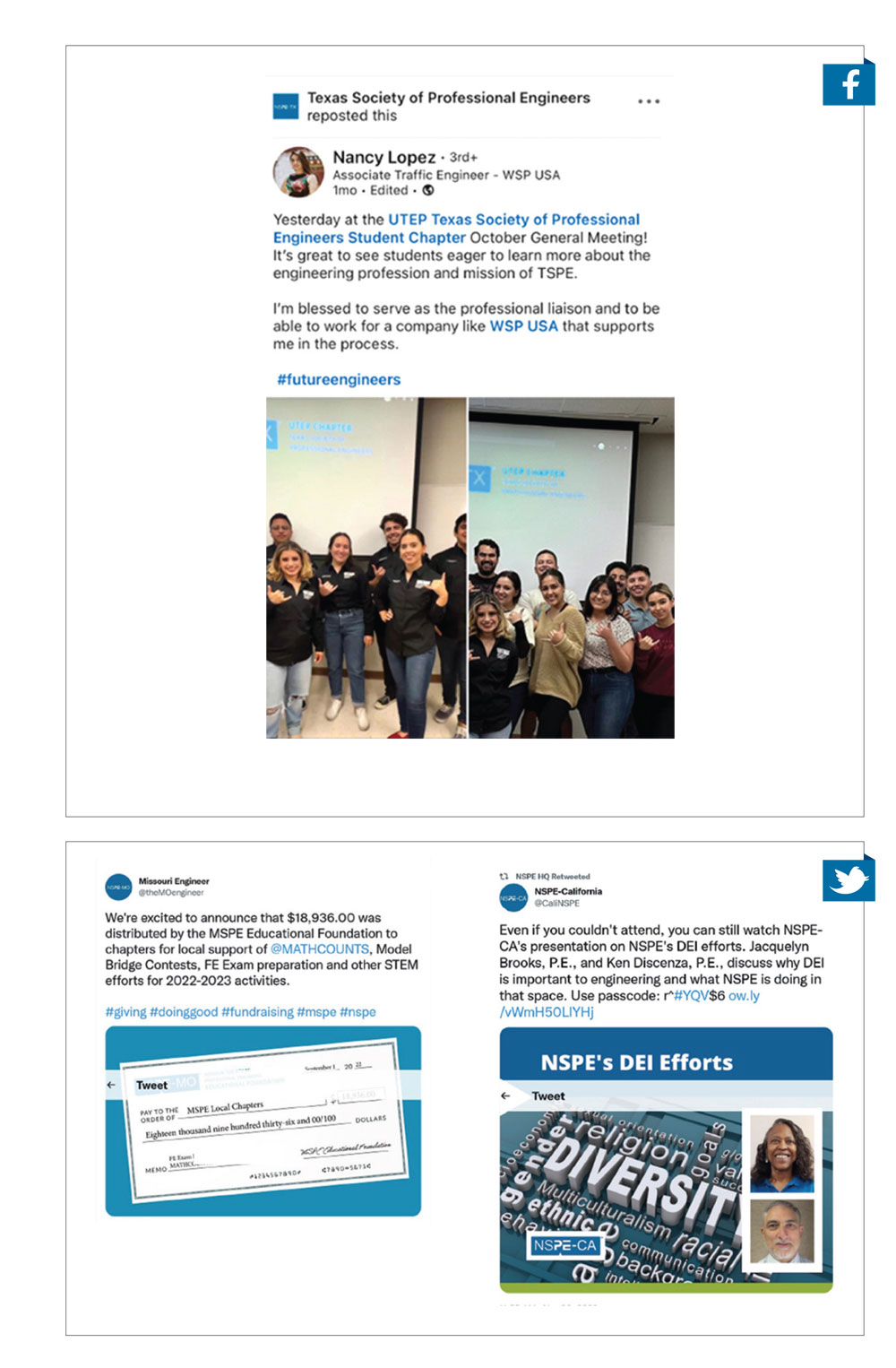January/February 2018
You Said It
Managing Engineers
The November/December article “Taking the Managerial Plunge” got a lot of members talking.
One of the reasons given for a lack of managerial/ leadership skills in engineers is that it’s not covered in undergraduate programs, but the article doesn’t give any discussion of addressing that problem. Instead it focuses on what the engineer can do once they are in the workplace. Why can’t undergraduate programs incorporate management into regular coursework? This wouldn’t be a specific course (like project management) but something that’s included in evaluating group work.
I had many group projects where the lack of a manager was readily apparent. Generally, all of the group members are treated equally in the project, and their “buy-in” only went so far as their personal grade was concerned. Sometimes there was credit given for participation, but that’s not the same as management. Usually, the person with the stronger personality started to take on the more managerial tasks (and often did so on all of their projects).
J. Andrew Parsons, P.E.
Hillsboro, OR
I’m currently taking a few graduate courses on engineering management. Learning lots of things about teams and teaming, quality leadership, and effective uses of management skills to help with business endeavors. One of the authors studied, the famous Joe Juran, once said that 80% of organizational problems are management caused.
I would agree with Juran’s assessment, considering how important a manager’s approach to worker interactions, communication skills, goal setting and accountability, and reactions to failures play in determining the level of success for a given endeavor. Considering this and the fact that engineers must lead in some form or another (i.e., part of our duty is to speak out and work to address public welfare concerns) it seems management should be a bigger focus within current education curriculums. Alas, so much to cram into a four-year degree!
Brian Meyers, P.E.
Lincoln, NE
Over the last few decades the bachelor’s degree in engineering has shrunk from 145–150 semester credits to 120–125 semester credits. At the same time, there has been an increase in humanities requirements. As a result, EEs (my field) no longer get statics and dynamics, strength of materials, a third semester of physics, and a second semester of chemistry, at least typically (there might be some programs out there that still do some of this). The lack of a “broad” education makes multidisciplinary projects that much harder, not to mention the advances in technology that need to be understood. This has led some technical societies to push for a master’s degree or an additional 30 semester credits of education as a requirement for licensure. Adding management course(s) to the mix will further erode the technical education requirements. Why not just let those wishing to go into management get an MBA? Lots of engineers do that now.
Eric Tappert, P.E.
Coopersburg, PA
In my experience, the things that make a good engineer and a good manager are entirely different. And so, rarely does one find a great manager who started as an engineer.
Today leadership training seems to be the hot topic. Good managers are not trained to be such. In my experience this is a talent they have from an early age. The most successful companies have ways to find these few gifted individuals and then encourage them to use their talents. Sincerity in a manager is a quality that is priceless because it’s not hard to tell when a manager is just “going through the motions.” First, most of those motions are highlighted in the 10 tips from the article. Following these steps religiously with each employee clearly shows that that you have a manager trying to run in an engineer’s problem-solving cookbook. Sincerity, concern for people and mission, intelligence. Add some experience and you have a good manager, someone who will strive to achieve the mission by using the best talents of their people.
Neil Wood, P.E.
Brown Deer, WI
Don’t miss out on the discussion in NSPE’s online Communities for professional engineers. Engage with your peers on issues of professional importance. Visit https://community.nspe.org.
Join the Conversation
There’s no shortage of ways to connect with the Society as well as other members. NSPE’s Communities, Twitter, Facebook, LinkedIn, and Instagram all help you make that connection. Or you can write a letter or send an e-mail to the address below.
On this page, we’ll show you some highlights of what people are saying. Keep in mind, however, that the views expressed are those of the author and do not necessarily represent the views of and should not be attributable to the National Society of Professional Engineers.


 Volunteering at NSPE is a great opportunity to grow your professional network and connect with other leaders in the field.
Volunteering at NSPE is a great opportunity to grow your professional network and connect with other leaders in the field. The National Society of Professional Engineers (NSPE) encourages you to explore the resources to cast your vote on election day:
The National Society of Professional Engineers (NSPE) encourages you to explore the resources to cast your vote on election day:







